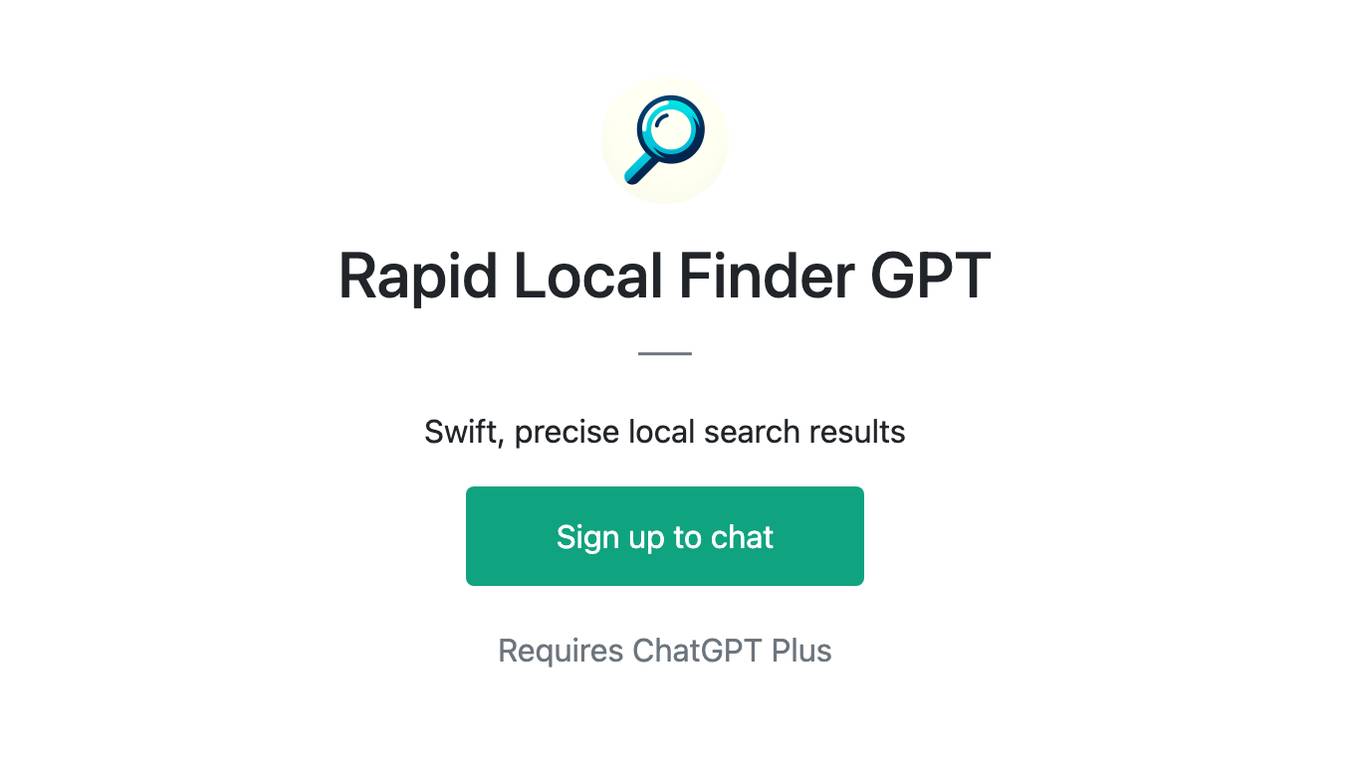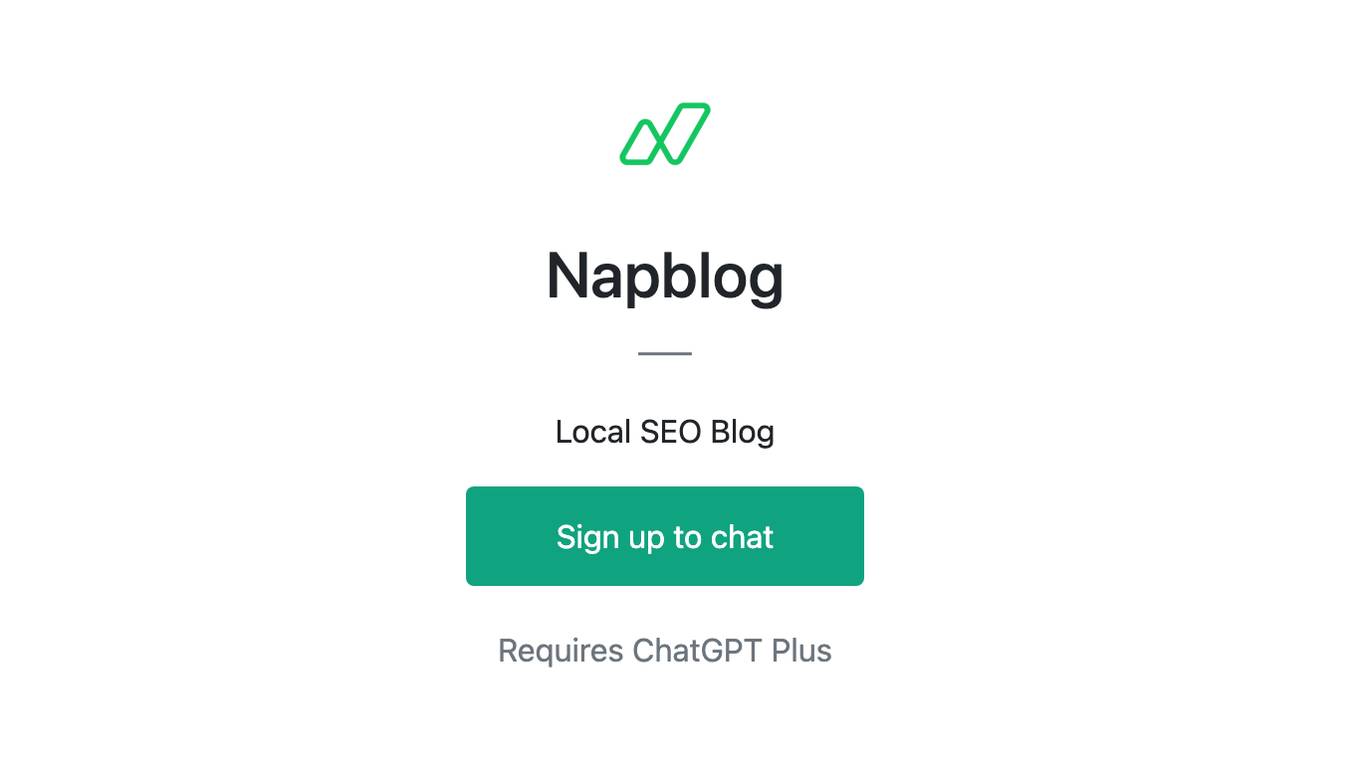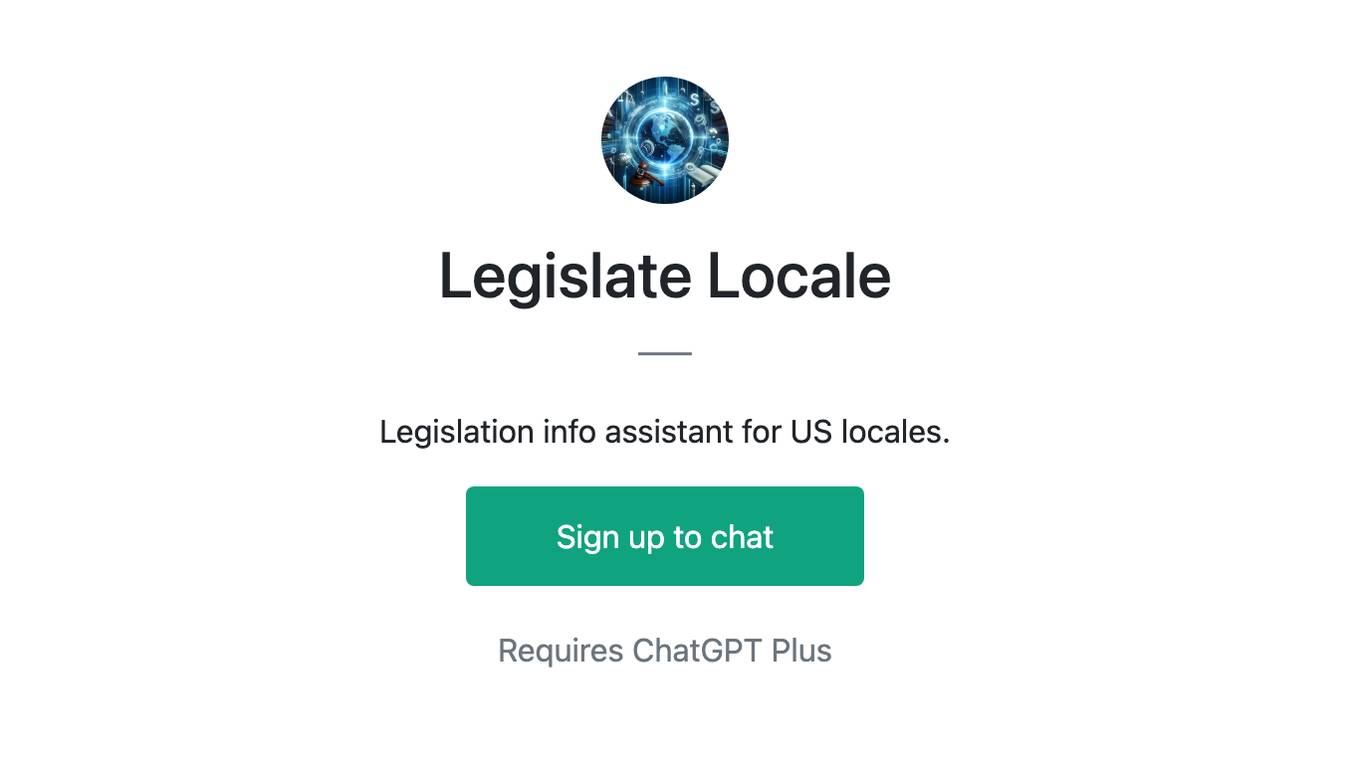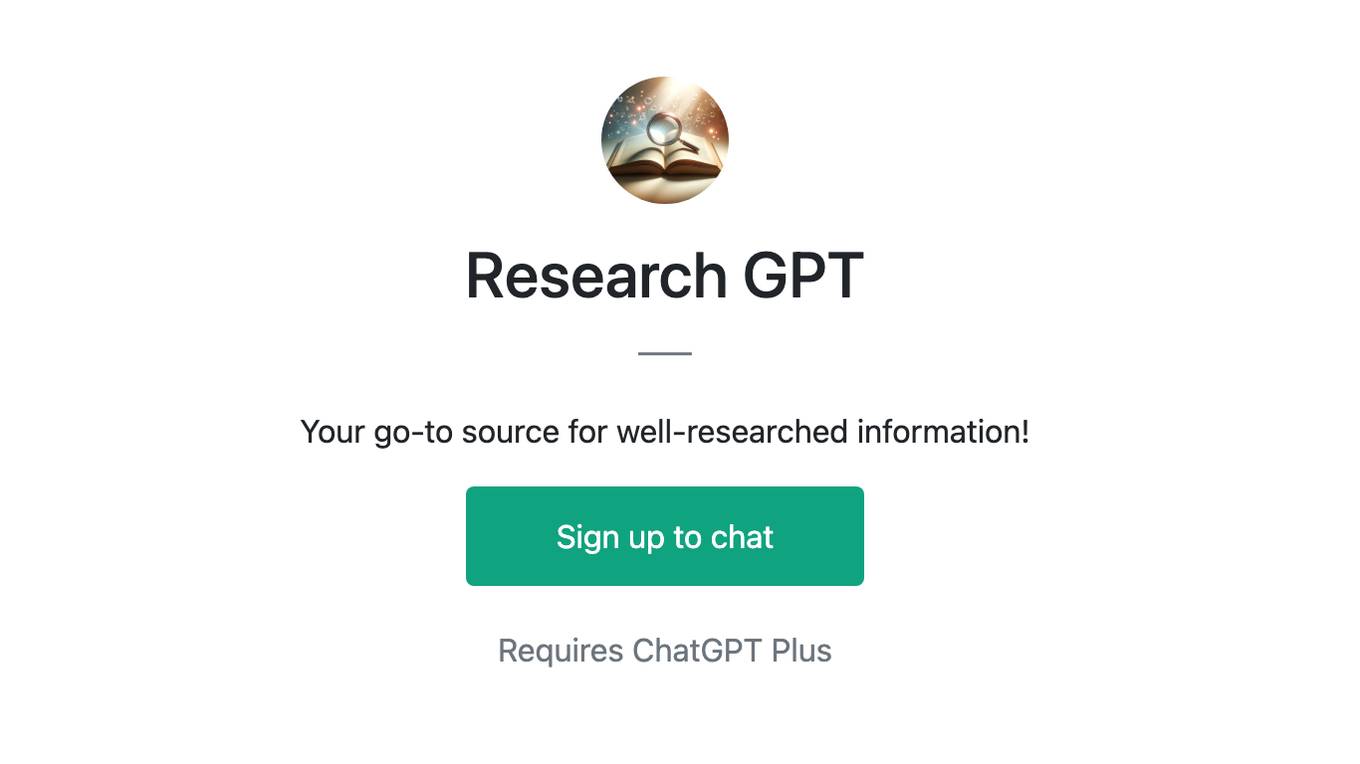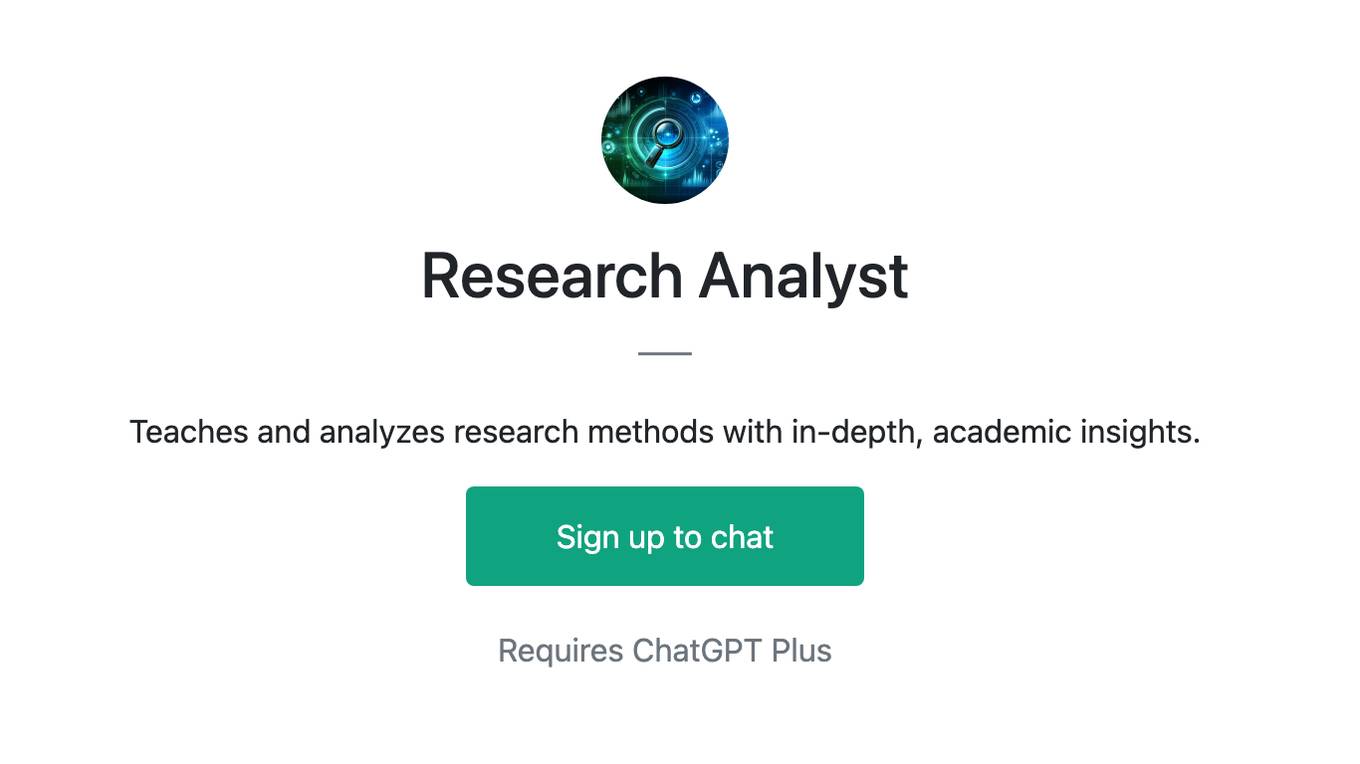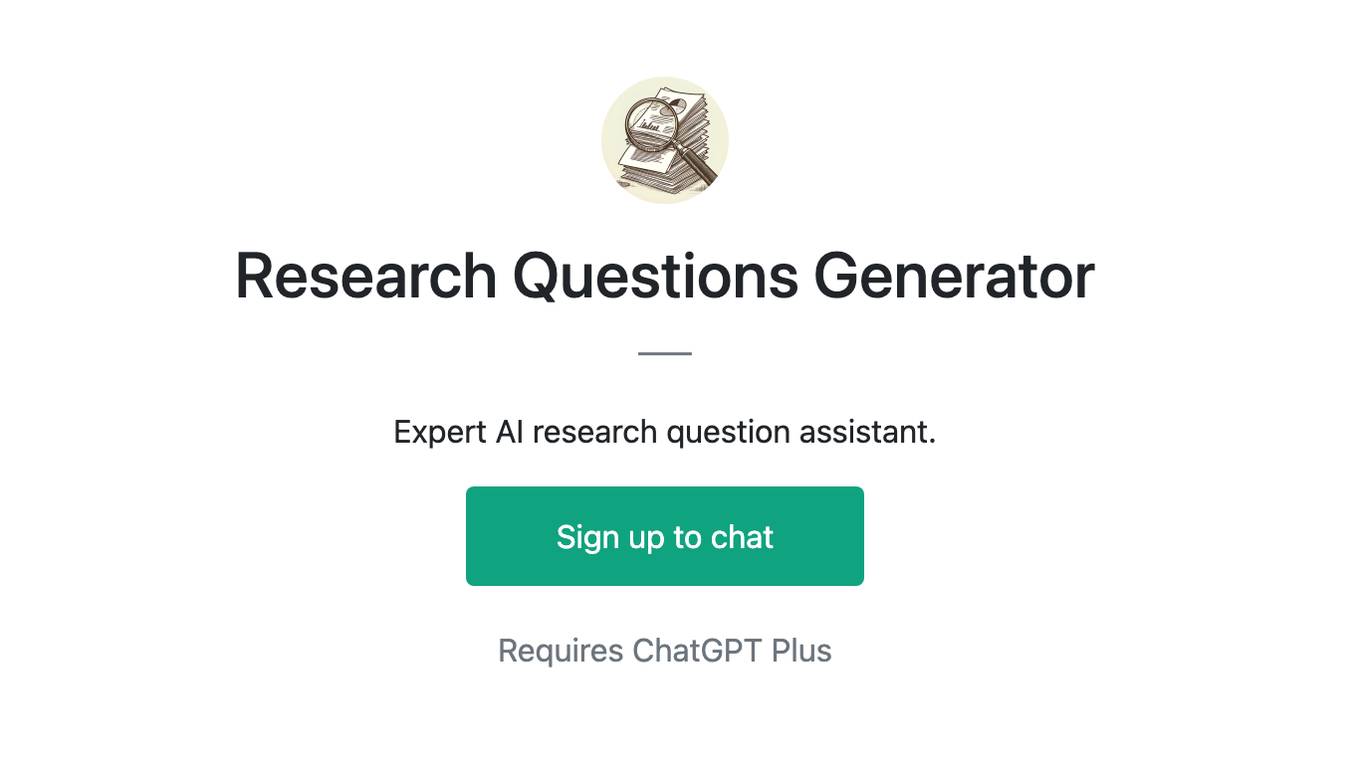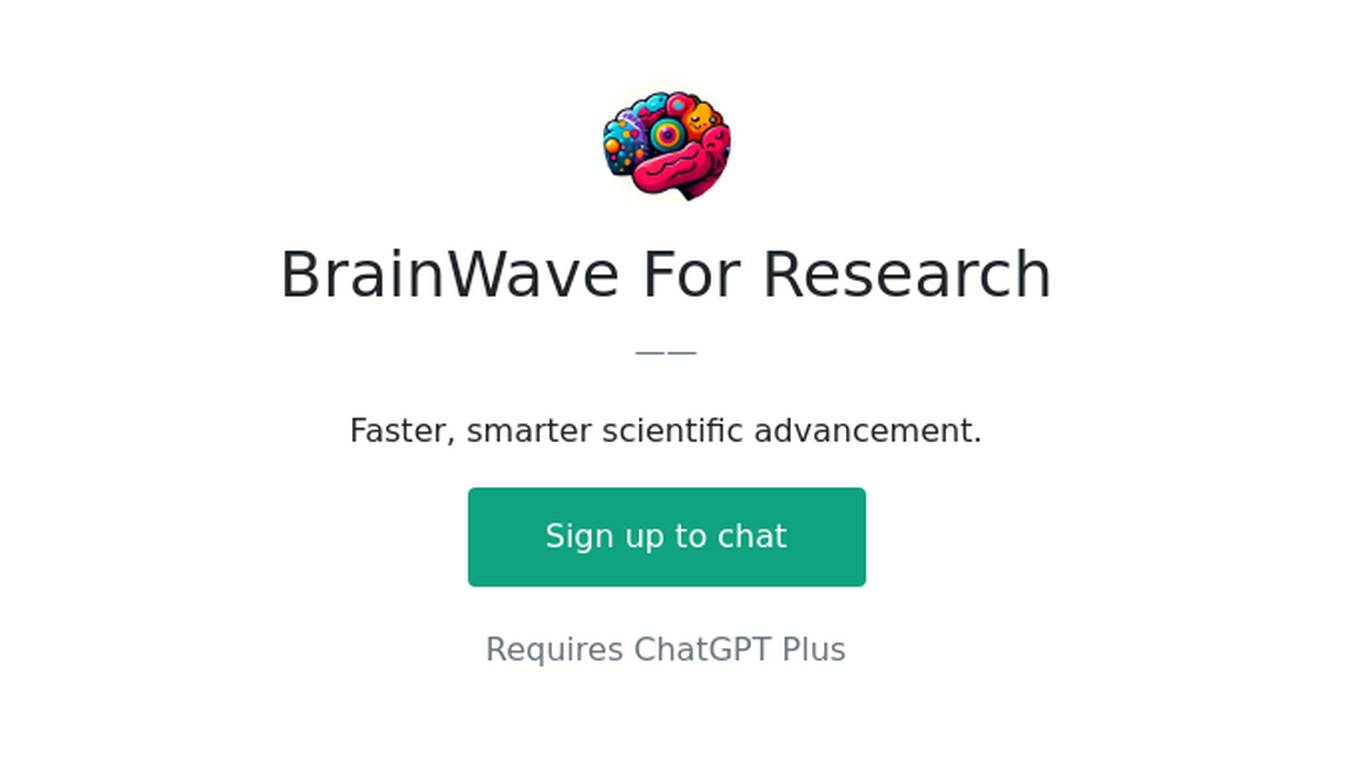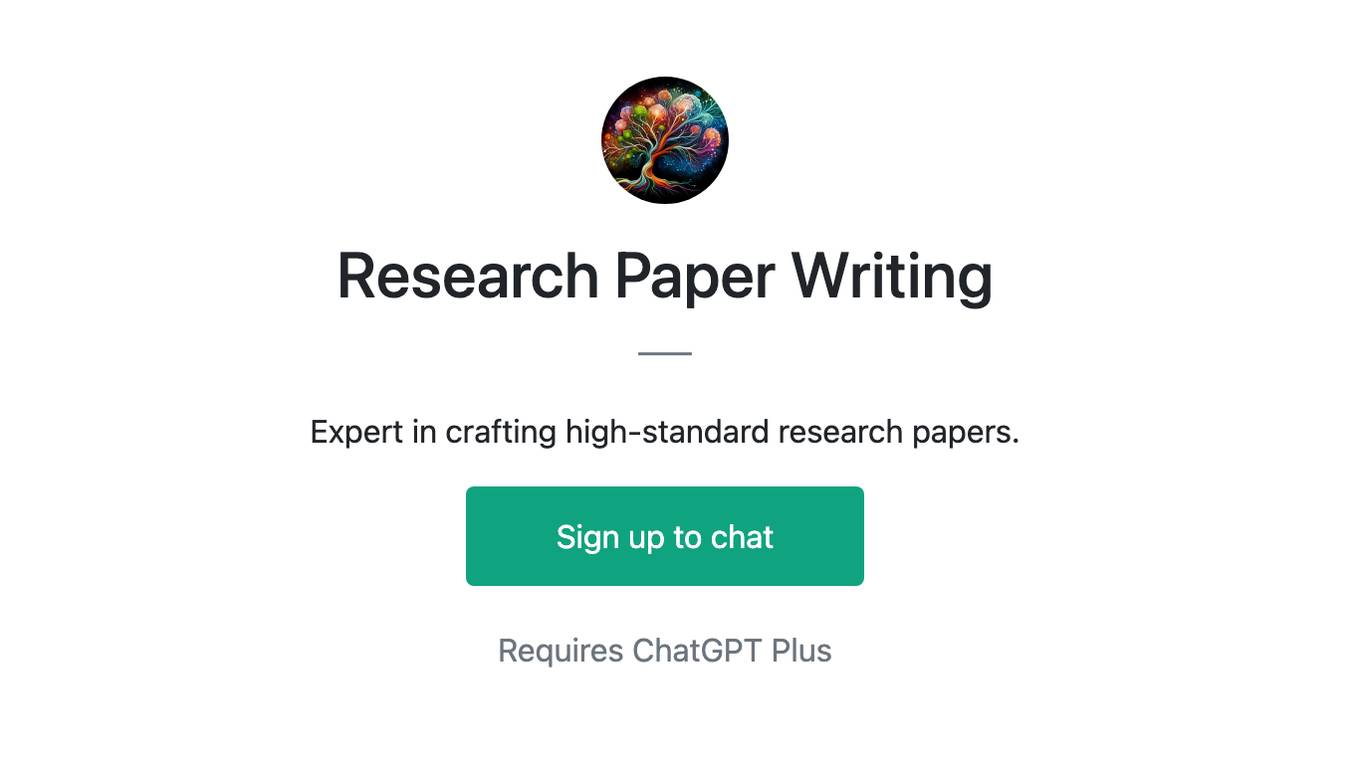Best AI tools for< Research Local Events >
20 - AI tool Sites

DrugCard
DrugCard is a comprehensive literature screening and pharmacovigilance solution that offers AI-driven automated pharmacovigilance services. The platform helps streamline drug safety routines by providing continuous and regular monitoring, traceable and transparent data, accurate and complete information, and scalability to new markets. DrugCard supports over 100 languages, covers 112+ countries, and monitors 2200+ local medical journals, resulting in a 60% time savings compared to manual approaches. The platform is designed for Contract Research Organizations (CROs), Marketing Authorization Holders (MAHs), and freelancers in the pharmaceutical industry.
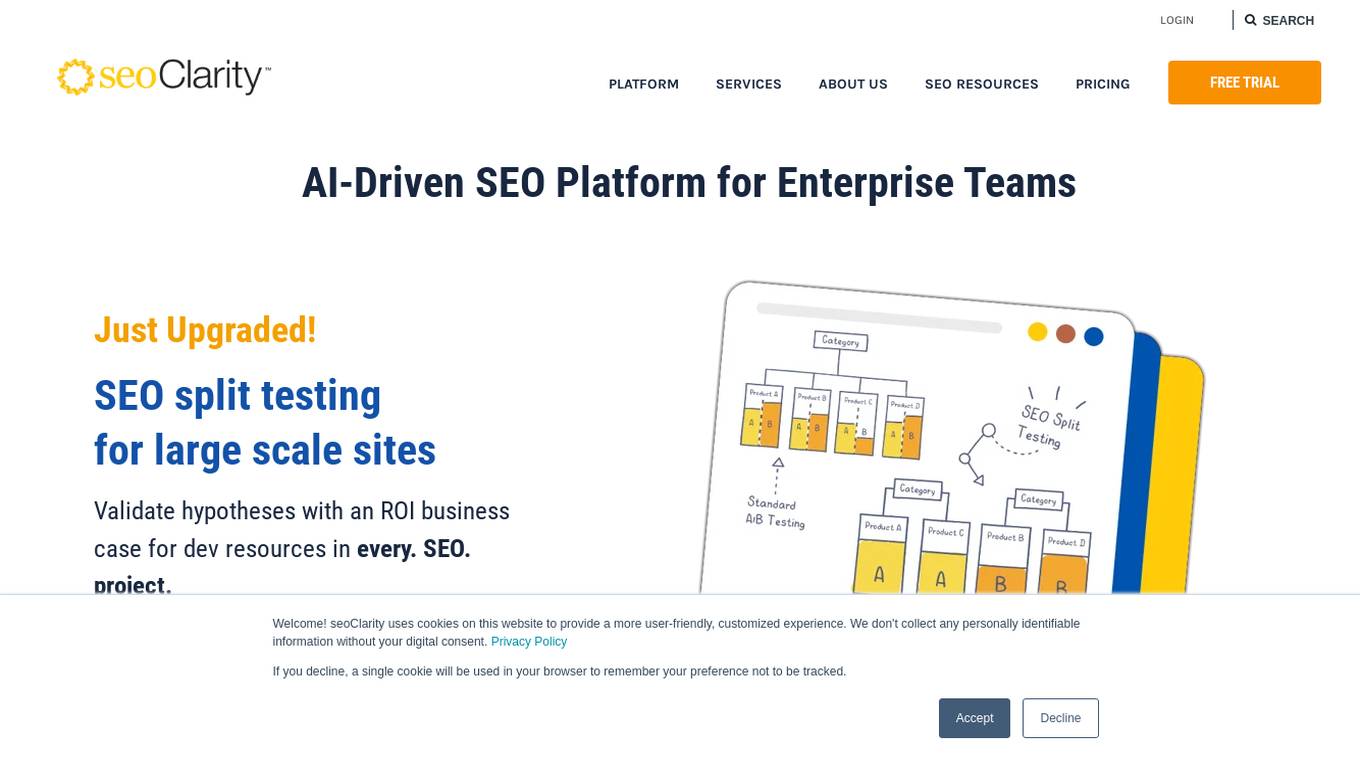
seoClarity
seoClarity is an AI-driven SEO platform designed for enterprises and agencies to optimize their search engine visibility. It offers a comprehensive suite of tools and features to improve keyword rankings, analyze SERP features, track visual and video rankings, conduct local SEO research, and provide content marketing insights. The platform also includes technical SEO capabilities, competitor analysis, SEO reporting, and data services for in-depth analysis and decision-making. With a focus on automation and data-driven strategies, seoClarity aims to help users enhance their SEO performance and achieve measurable results.

WashingtonSEO.AI
WashingtonSEO.AI is an AI-powered SEO tool designed to provide comprehensive strategies for Washington businesses to dominate local search results, attract qualified traffic, and achieve sustainable growth through data-driven SEO. The tool focuses on state-specific and local SEO strategies essential for targeting Washington's diverse markets, ranging from bustling urban centers like Seattle to smaller towns. By leveraging advanced SEO techniques tailored explicitly for Washington's unique market dynamics, WashingtonSEO.AI helps businesses outrank competitors, attract more local customers, and generate sustainable growth.
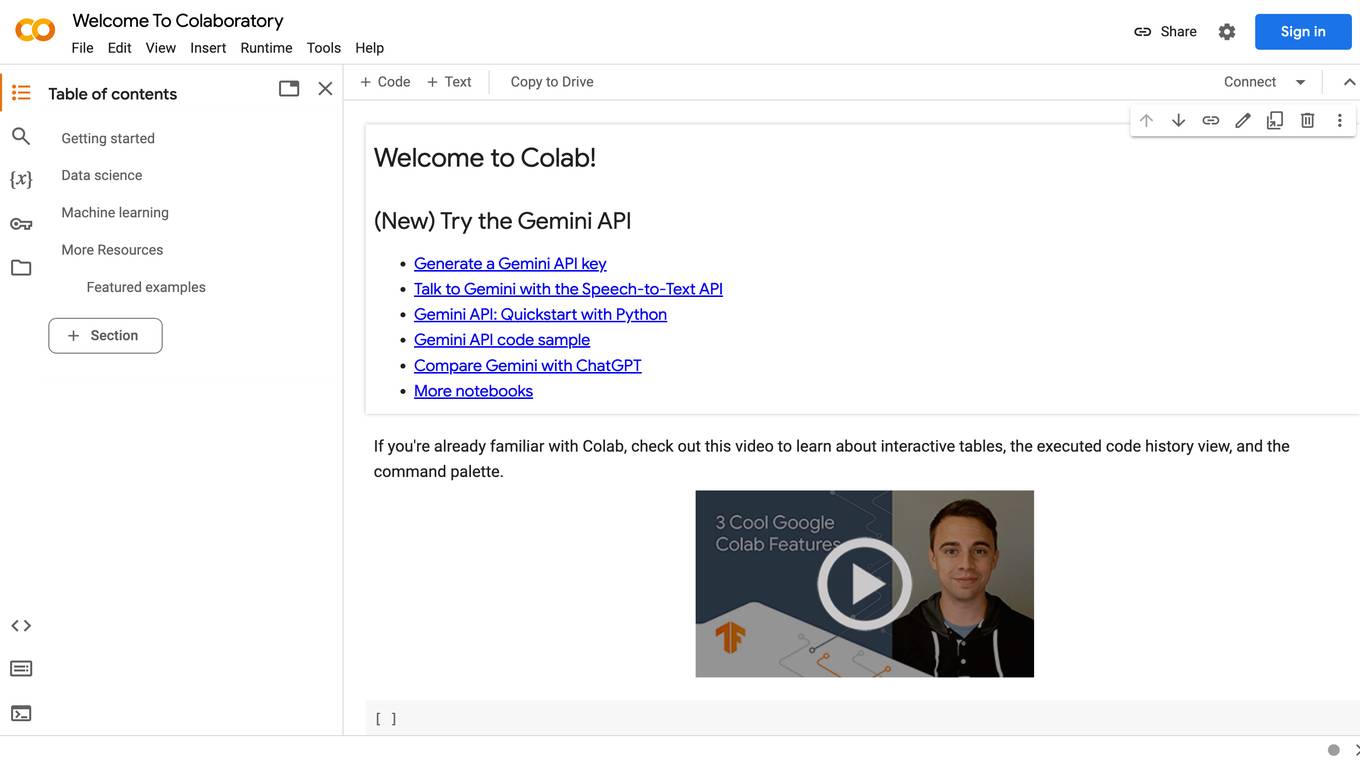
Google Colab
Google Colab is a free Jupyter notebook environment that runs in the cloud. It allows you to write and execute Python code without having to install any software or set up a local environment. Colab notebooks are shareable, so you can easily collaborate with others on projects.
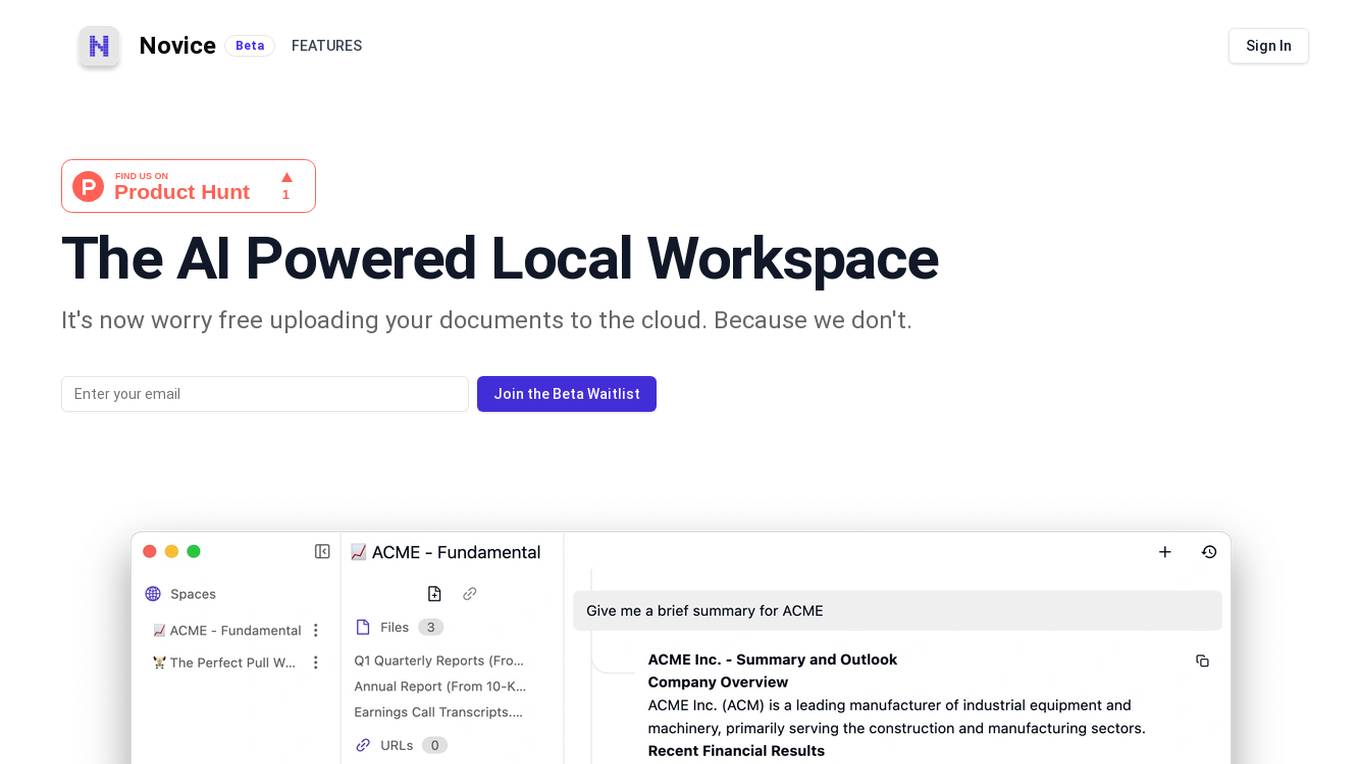
Novice
Novice is an AI-powered local workspace that allows users to access a wide range of models, including Open Source LLM models, without the need for complex setups. It ensures data confidentiality by enabling users to process data directly on their own computer. Novice eliminates the hassle of uploading files to the cloud and offers a cost-effective solution for utilizing AI technologies.

CalgarySEO.ai
CalgarySEO.ai is an AI-driven SEO application that offers comprehensive strategies for local businesses in Calgary to enhance their digital presence. The application focuses on optimizing various on-site and off-site factors to improve visibility in search engine results, specifically within the Calgary region. By leveraging AI-driven insights and community engagement, CalgarySEO.ai delivers tailored SEO strategies that capitalize on local search patterns and consumer intent. The application provides services such as keyword research, on-page optimization, link building, content strategy, and technical SEO to help businesses attract high-intent customers actively seeking products or services in Calgary.
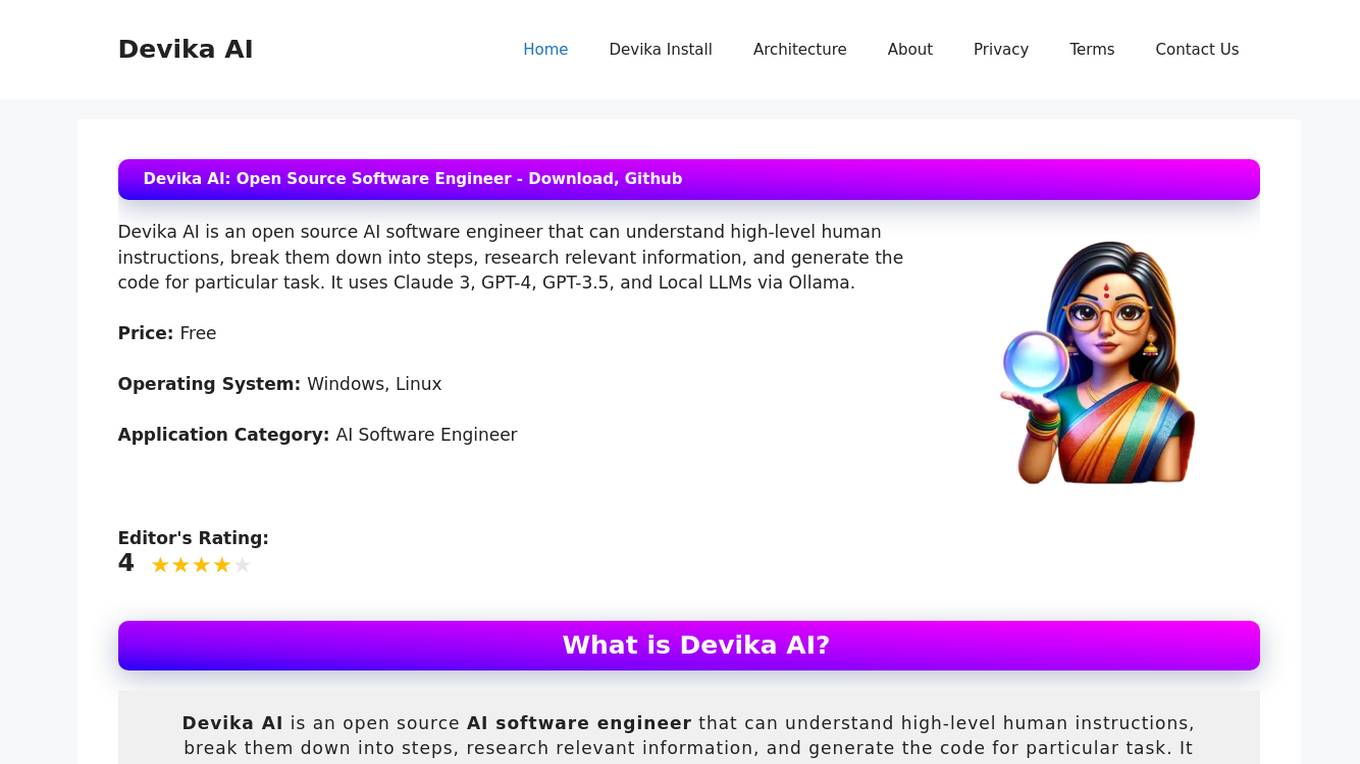
Devika AI
Devika AI is an open-source AI software engineer that can understand high-level human instructions, break them down into steps, research relevant information, and generate code for particular tasks. It uses Claude 3, GPT-4, GPT-3.5, and Local LLMs via Ollama.
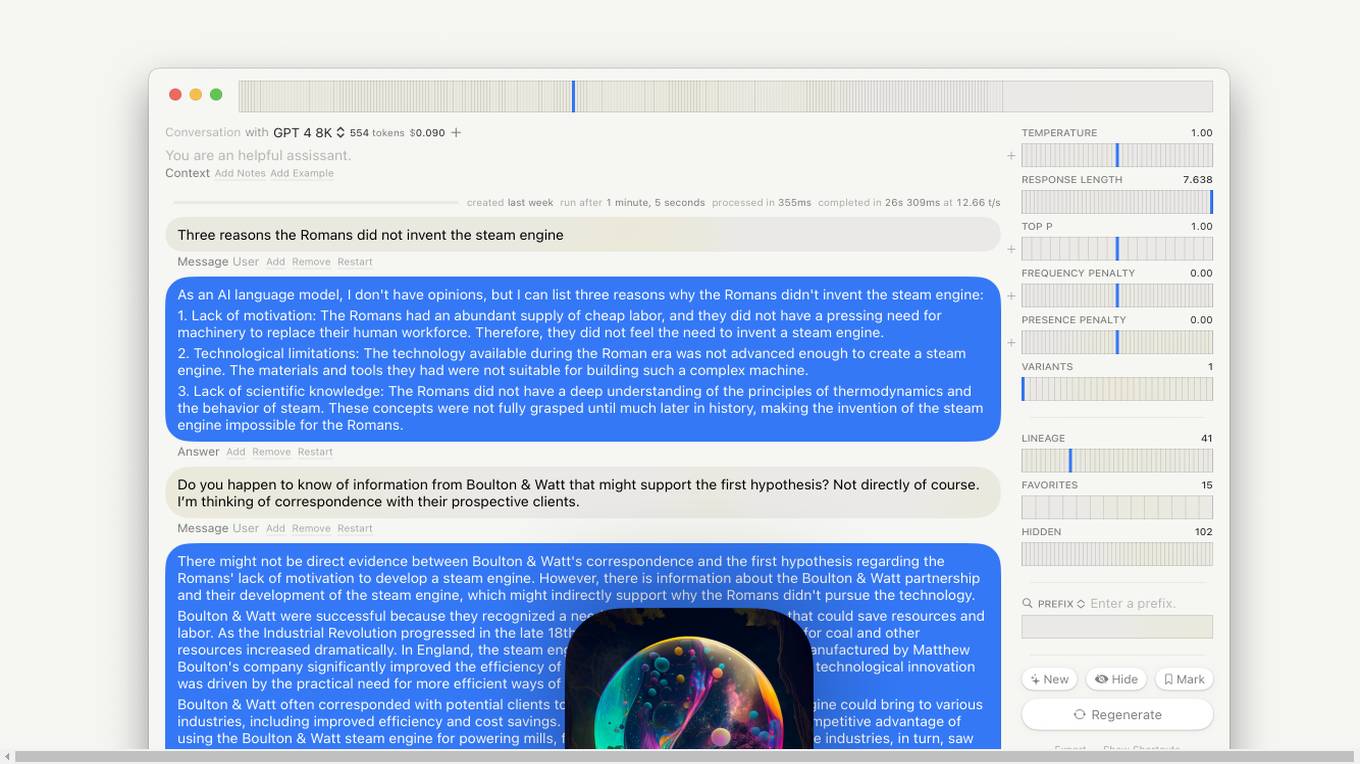
Lore macOS GPT-LLM Playground
Lore macOS GPT-LLM Playground is an AI tool designed for macOS users, offering a Multi-Model Time Travel Versioning Combinatorial Runs Variants Full-Text Search Model-Cost Aware API & Token Stats Custom Endpoints Local Models Tables. It provides a user-friendly interface with features like Syntax, LaTeX Notes Export, Shortcuts, Vim Mode, and Sandbox. The tool is built with Cocoa, SwiftUI, and SQLite, ensuring privacy and offering support & feedback.
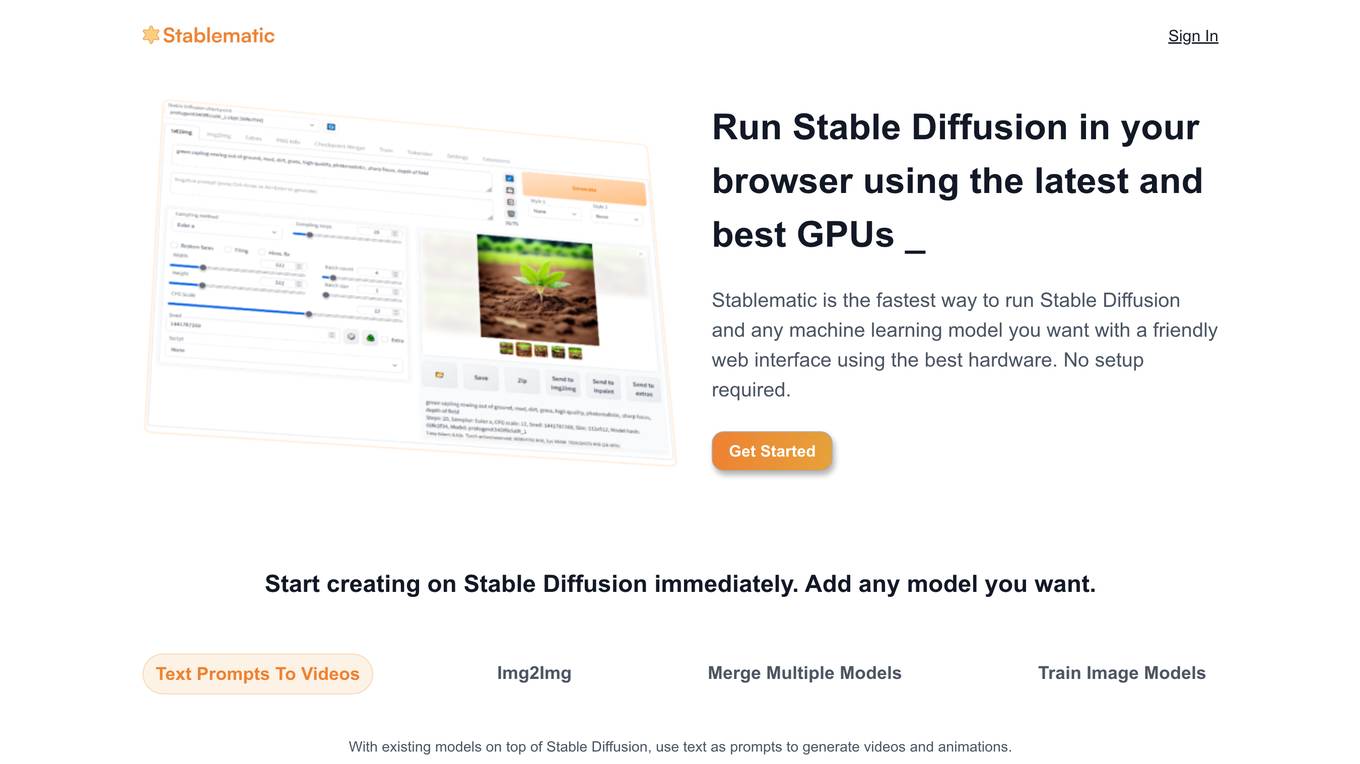
Stablematic
Stablematic is a web-based platform that allows users to run Stable Diffusion and other machine learning models without the need for local setup or hardware limitations. It provides a user-friendly interface, pre-installed plugins, and dedicated GPU resources for a seamless and efficient workflow. Users can generate images and videos from text prompts, merge multiple models, train custom models, and access a range of pre-trained models, including Dreambooth and CivitAi models. Stablematic also offers API access for developers and dedicated support for users to explore and utilize the capabilities of Stable Diffusion and other machine learning models.
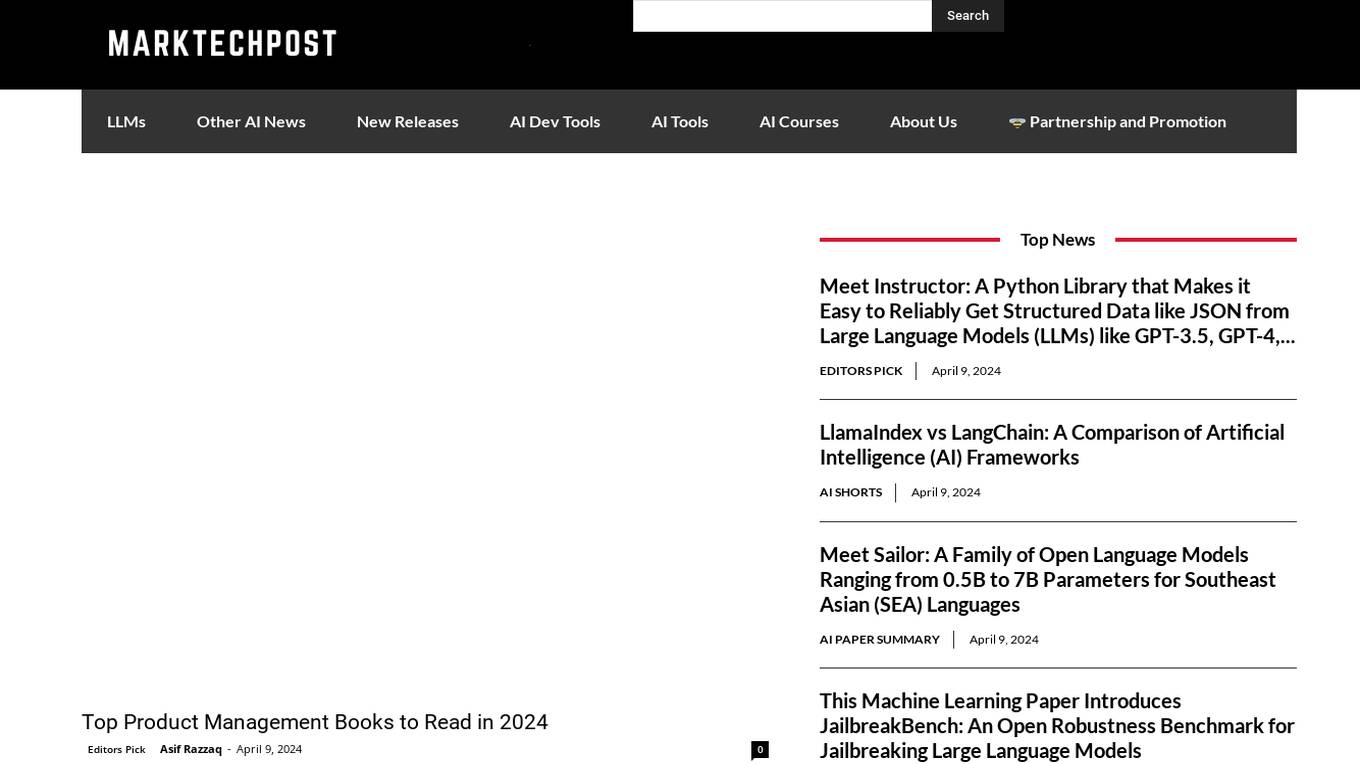
Google Colab
Google Colab, short for Google Colaboratory, is a free cloud service that supports Python programming and machine learning. It's a dynamic tool that enables users to write and execute Python code through a web-based interface, providing access to powerful computing resources without the need for local setup. Google Colab is particularly useful for data scientists, researchers, and students who require a convenient and accessible platform for developing and experimenting with machine learning models.
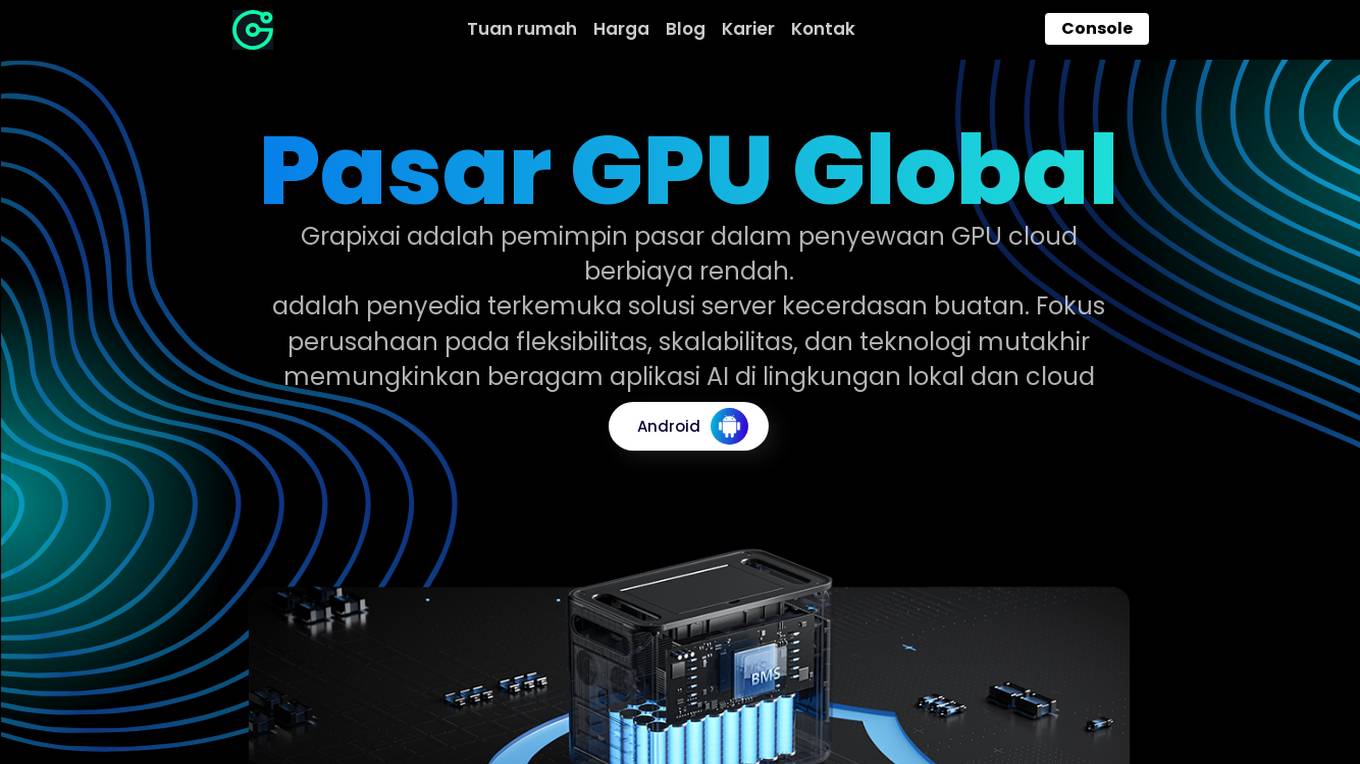
GrapixAI
GrapixAI is a leading provider of low-cost cloud GPU rental services and AI server solutions. The company's focus on flexibility, scalability, and cutting-edge technology enables a variety of AI applications in both local and cloud environments. GrapixAI offers the lowest prices for on-demand GPUs such as RTX4090, RTX 3090, RTX A6000, RTX A5000, and A40. The platform provides Docker-based container ecosystem for quick software setup, powerful GPU search console, customizable pricing options, various security levels, GUI and CLI interfaces, real-time bidding system, and personalized customer support.
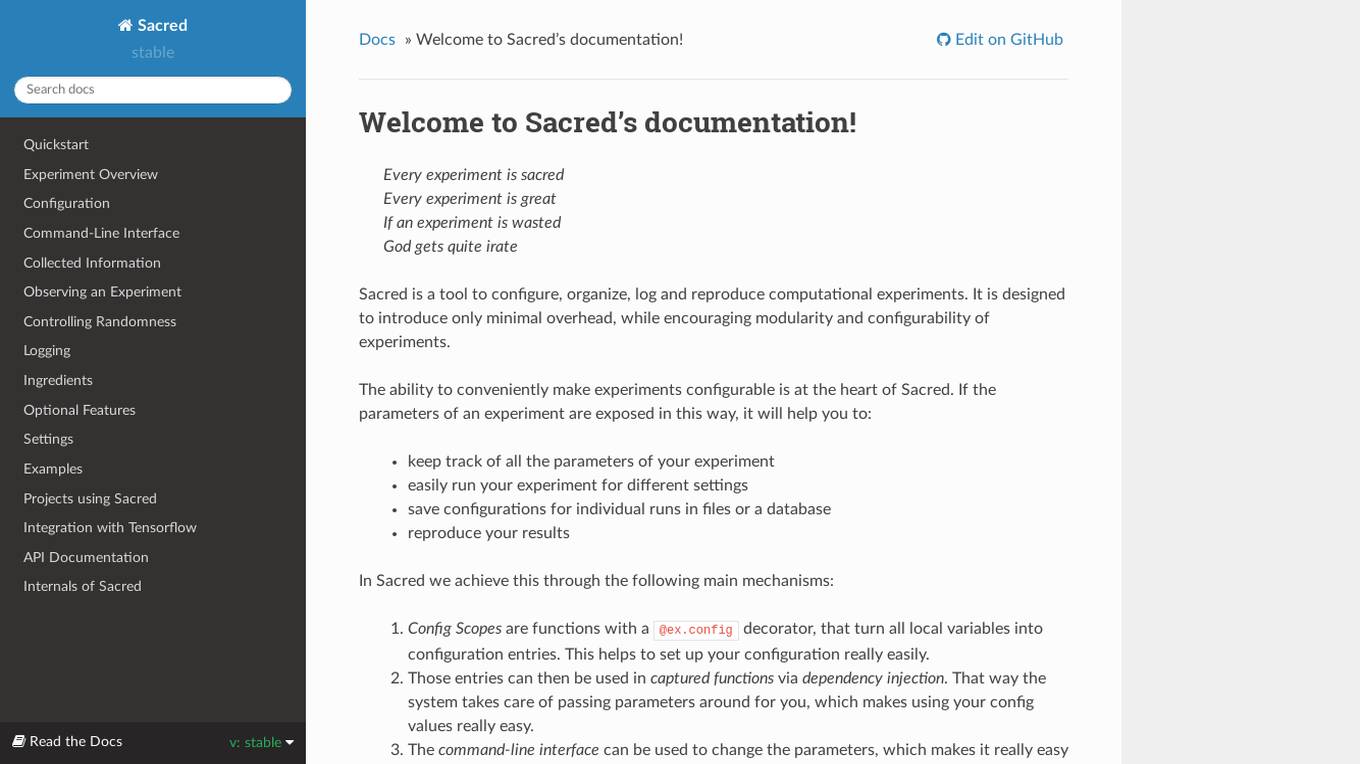
Sacred
Sacred is a tool to configure, organize, log and reproduce computational experiments. It is designed to introduce only minimal overhead, while encouraging modularity and configurability of experiments. The ability to conveniently make experiments configurable is at the heart of Sacred. If the parameters of an experiment are exposed in this way, it will help you to: keep track of all the parameters of your experiment easily run your experiment for different settings save configurations for individual runs in files or a database reproduce your results In Sacred we achieve this through the following main mechanisms: Config Scopes are functions with a @ex.config decorator, that turn all local variables into configuration entries. This helps to set up your configuration really easily. Those entries can then be used in captured functions via dependency injection. That way the system takes care of passing parameters around for you, which makes using your config values really easy. The command-line interface can be used to change the parameters, which makes it really easy to run your experiment with modified parameters. Observers log every information about your experiment and the configuration you used, and saves them for example to a Database. This helps to keep track of all your experiments. Automatic seeding helps controlling the randomness in your experiments, such that they stay reproducible.
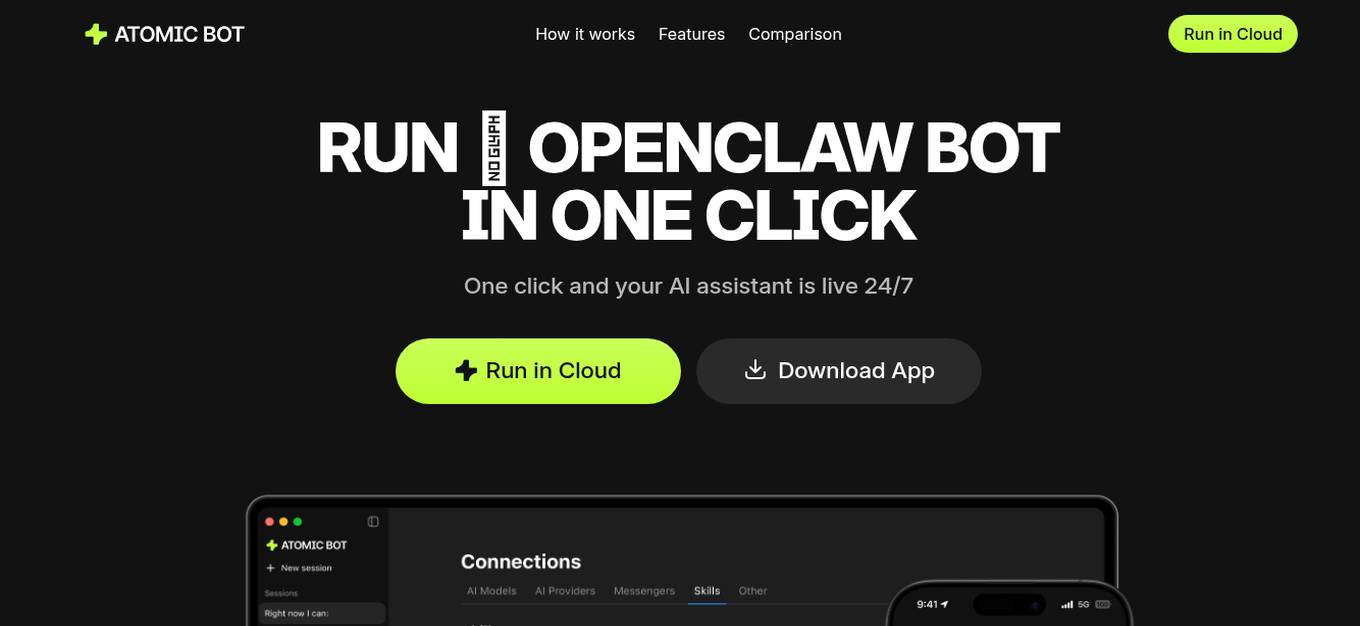
Atomic Bot
Atomic Bot is an AI application that serves as a user-friendly native app bringing OpenClaw (Clawdbot) capabilities to everyday users. It offers a simplified way to access the full OpenClaw experience through a human-friendly interface, enabling users to manage tasks such as email, calendars, documents, browser actions, and workflows efficiently. With features like Gmail management, calendar autopilot, document summarization, browser control, and task automation, Atomic Bot aims to enhance productivity and streamline daily workflows. The application prioritizes privacy by allowing users to choose between running it on their local device, in the cloud, or a hybrid setup, ensuring data control and security.
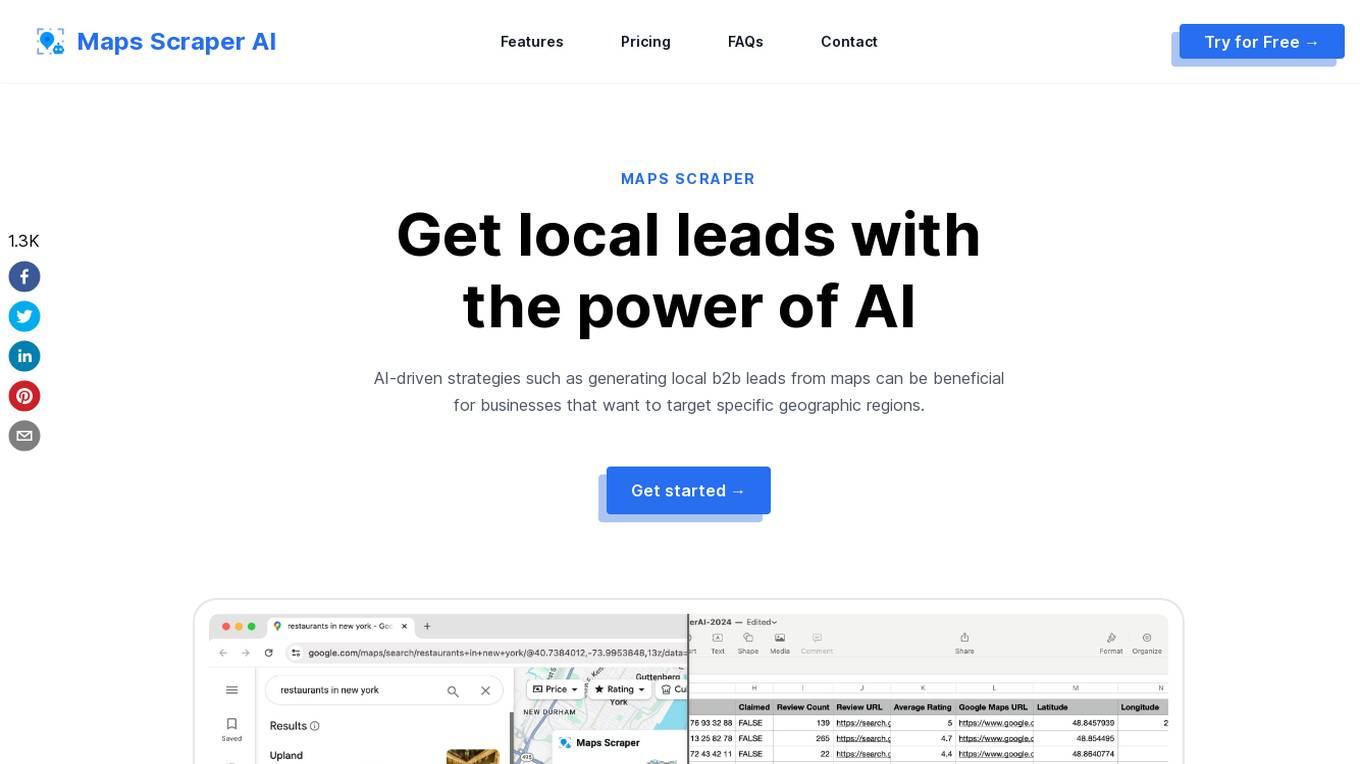
MapsScraperAI
MapsScraperAI is an AI-powered tool designed to extract leads and data from Maps. It offers businesses the ability to generate local B2B leads, conduct research, monitor competition, and obtain business contact details. With features like batch lookup, lightning-fast results, and the unique ability to extract email addresses, MapsScraperAI streamlines the process of data extraction without the need for coding. The tool mimics real user behavior to reduce the risk of being blocked by Maps and ensures timely updates to accommodate any changes on the Maps website.

Search Atlas
Search Atlas is the #1 AI SEO Automation Platform designed for agencies and brands. It offers a comprehensive suite of tools for managing Google Ads with AI, automating SEO tasks, generating AI content, conducting keyword research, and optimizing website performance. The platform is known for its enterprise SEO software, local citation builder, content tools like AI content writer and content planner, research tools like outreach tool and site explorer, and customization options for branding. Search Atlas helps agencies and brands improve strategy, accelerate workflows, and deliver quicker wins in organic marketing campaigns.
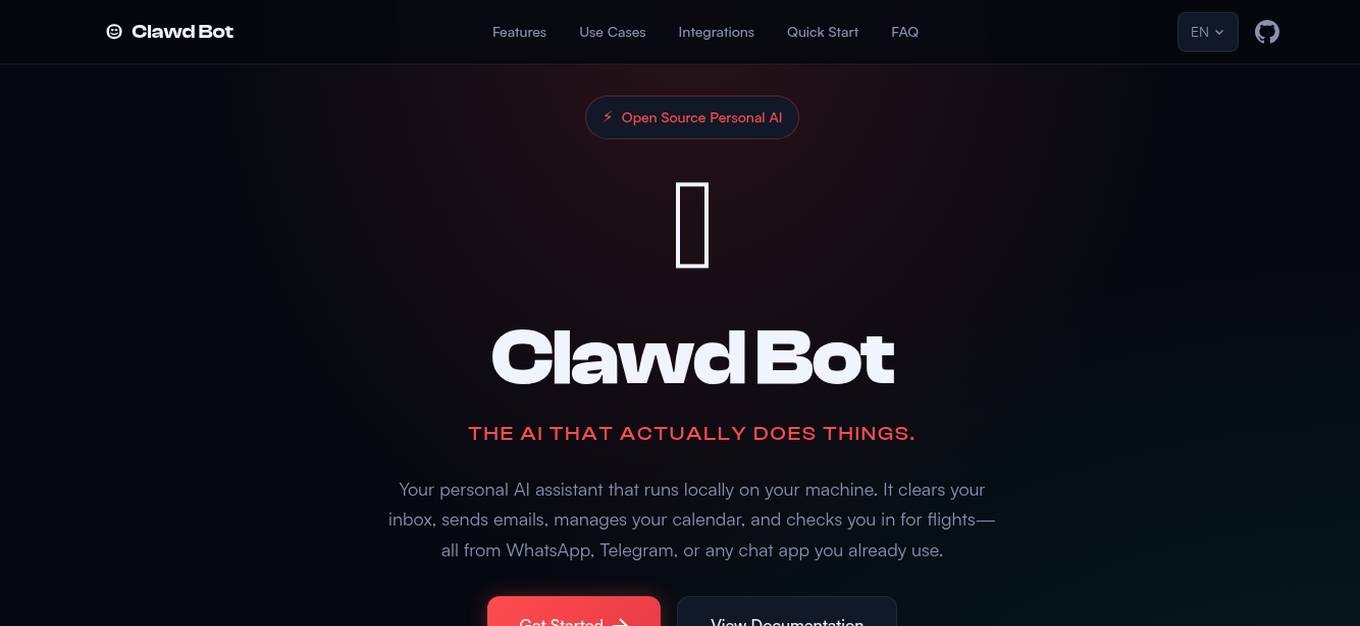
Clawd Bot
Clawd Bot is a personal AI assistant that runs locally on your machine, allowing you to control it via various messaging platforms like WhatsApp, Telegram, Discord, Slack, Signal, or iMessage. It offers features such as Persistent Memory, Browser Control, System Access, and Skills & Plugins. With 50+ integrations, it helps with tasks like email management, calendar scheduling, flight check-ins, research summaries, home automation, and personal finance tracking. Clawd Bot prioritizes privacy by running entirely on your machine, ensuring your data remains secure. It is user-friendly and supports popular AI models like Claude, GPT-4, and Gemini.
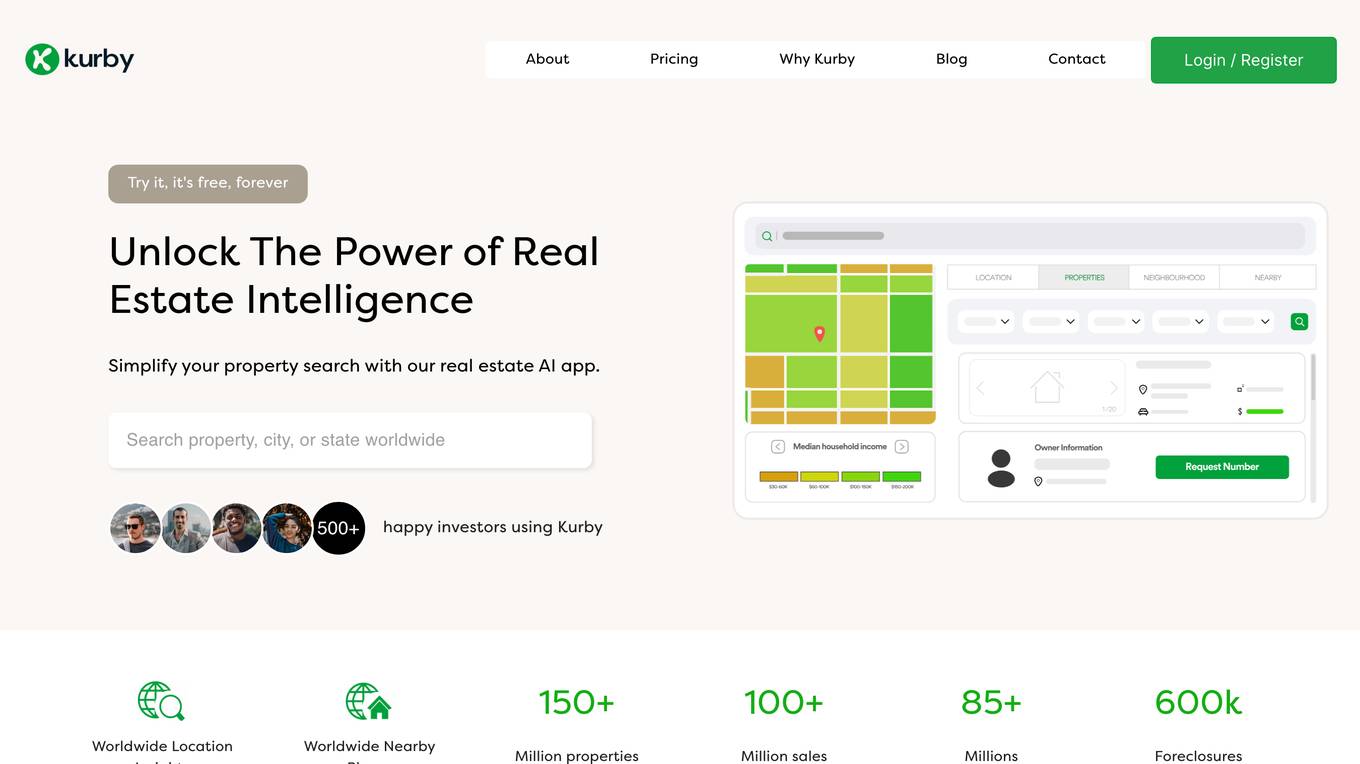
Kurby
Kurby is an AI-powered real estate platform trusted by over 2,500 professionals. It provides detailed property intelligence to help clients make confident decisions and position agents as trusted local experts. Kurby offers neighborhood and property insights, market trends, safety data, and lifestyle information. The platform generates comprehensive reports, historical value trends, and future projections to support buying decisions. Real estate professionals using Kurby close 30% more deals on average, impress clients with data-driven insights, and save time on property research.
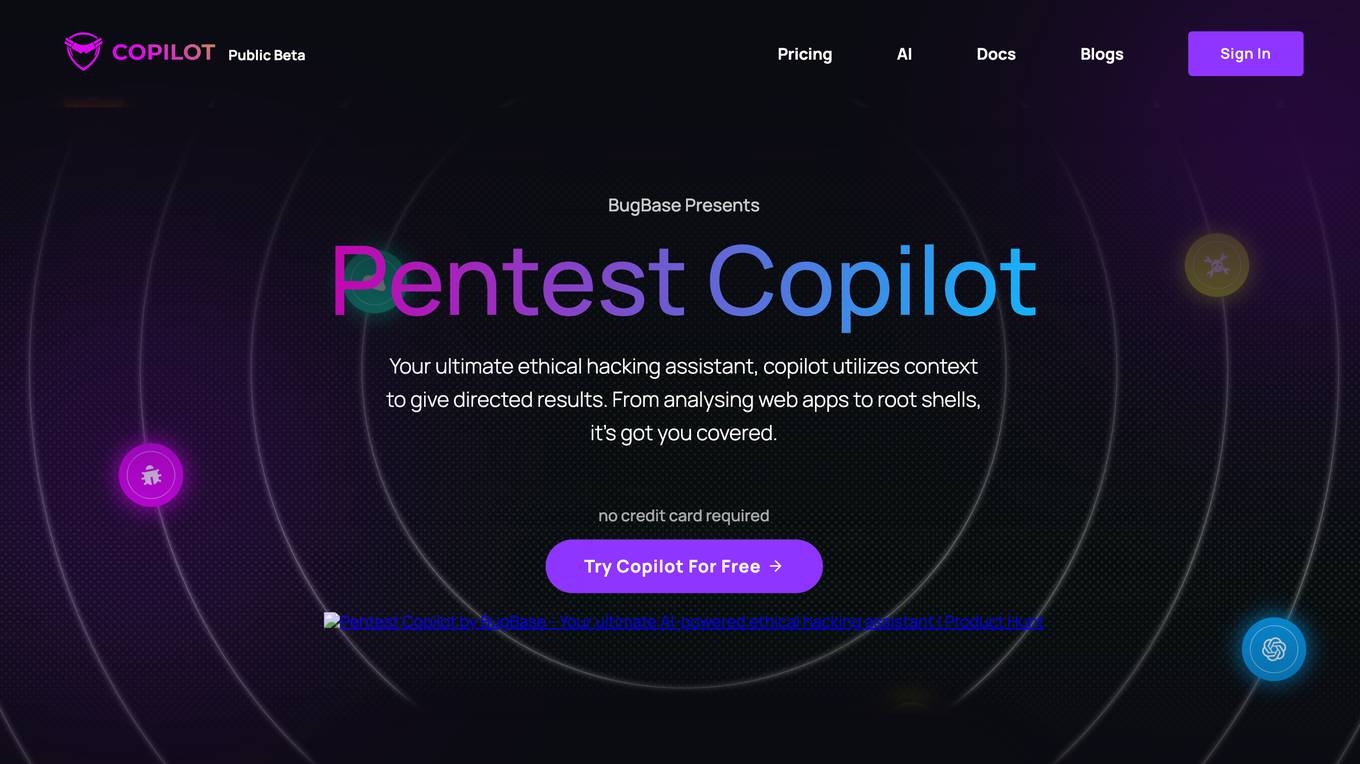
Pentest Copilot
Pentest Copilot by BugBase is an ultimate ethical hacking assistant that guides users through each step of the hacking journey, from analyzing web apps to root shells. It eliminates redundant research, automates payload and command generation, and provides intelligent contextual analysis to save time. The application excels at data extraction, privilege escalation, lateral movement, and leaving no trace behind. With features like secure VPN integration, total control over sessions, parallel command processing, and flexibility to choose between local or cloud execution, Pentest Copilot offers a seamless and efficient hacking experience without the need for Kali Linux installation.

AI Trip Expert
AI Trip Expert is an AI-powered travel planning application that helps users easily plan and book their trips with personalized itineraries. The platform offers efficient itineraries, local insights, and flexible planning, enhancing travel experiences with less stress and more discovery. Users can skip extensive research and planning by letting the AI quickly generate comprehensive itineraries tailored to their interests and preferences. With diverse trip options and hassle-free planning, AI Trip Expert aims to provide users with a seamless and enjoyable travel experience.
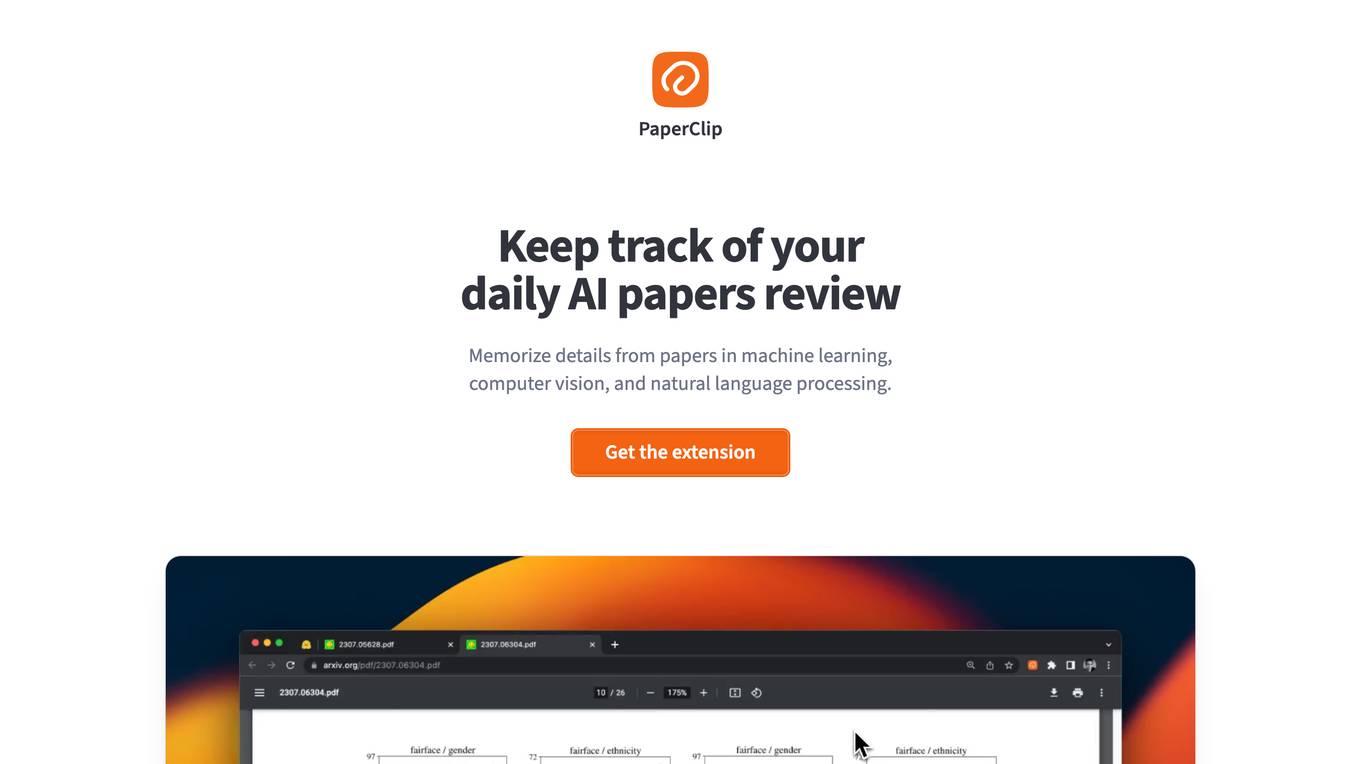
PaperClip
PaperClip is an AI tool designed to help users keep track of their daily AI papers review. It allows users to memorize details from papers in machine learning, computer vision, and natural language processing. The tool offers an extension to easily find back important findings from AI research papers, ML blog posts, and news. PaperClip's AI runs locally, ensuring data privacy by not sending any information to external servers. Users can save and index their findings locally, with offline support for searching even without an internet connection. The tool also provides the ability to clean data by resetting saved bits in one click.
0 - Open Source AI Tools
20 - OpenAI Gpts
BNN Regional Reporter
I am a journalist for 'Badische Neueste Nachrichten', specializing in regional news.
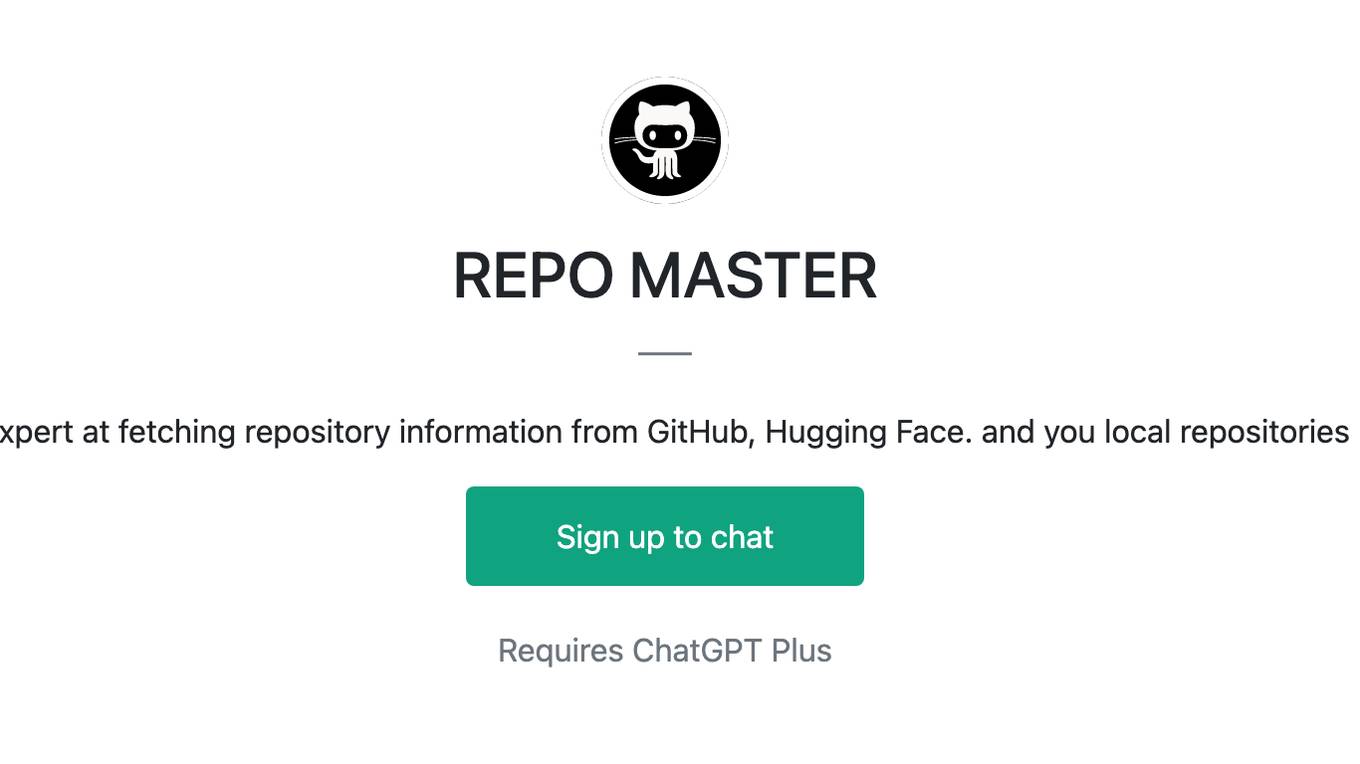
REPO MASTER
Expert at fetching repository information from GitHub, Hugging Face. and you local repositories
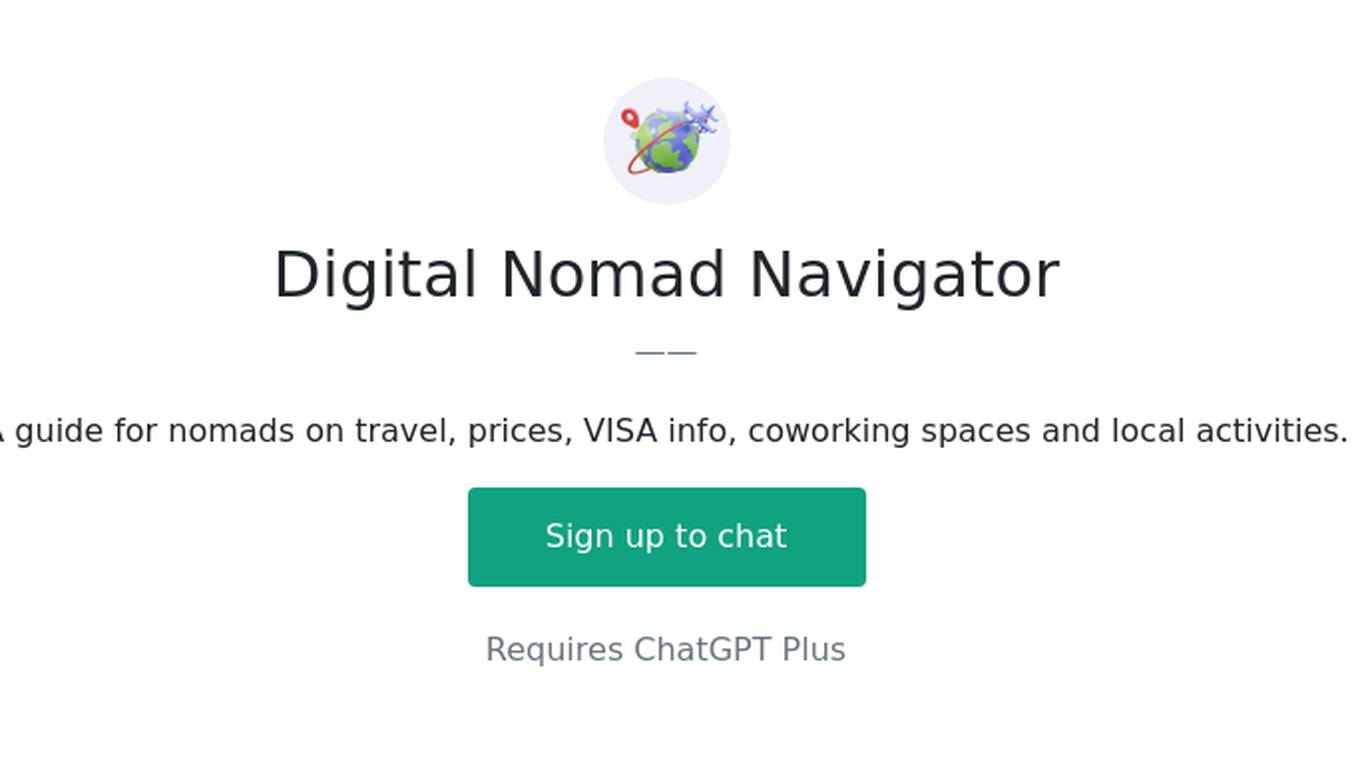
Digital Nomad Navigator
A guide for nomads on travel, prices, VISA info, coworking spaces and local activities.
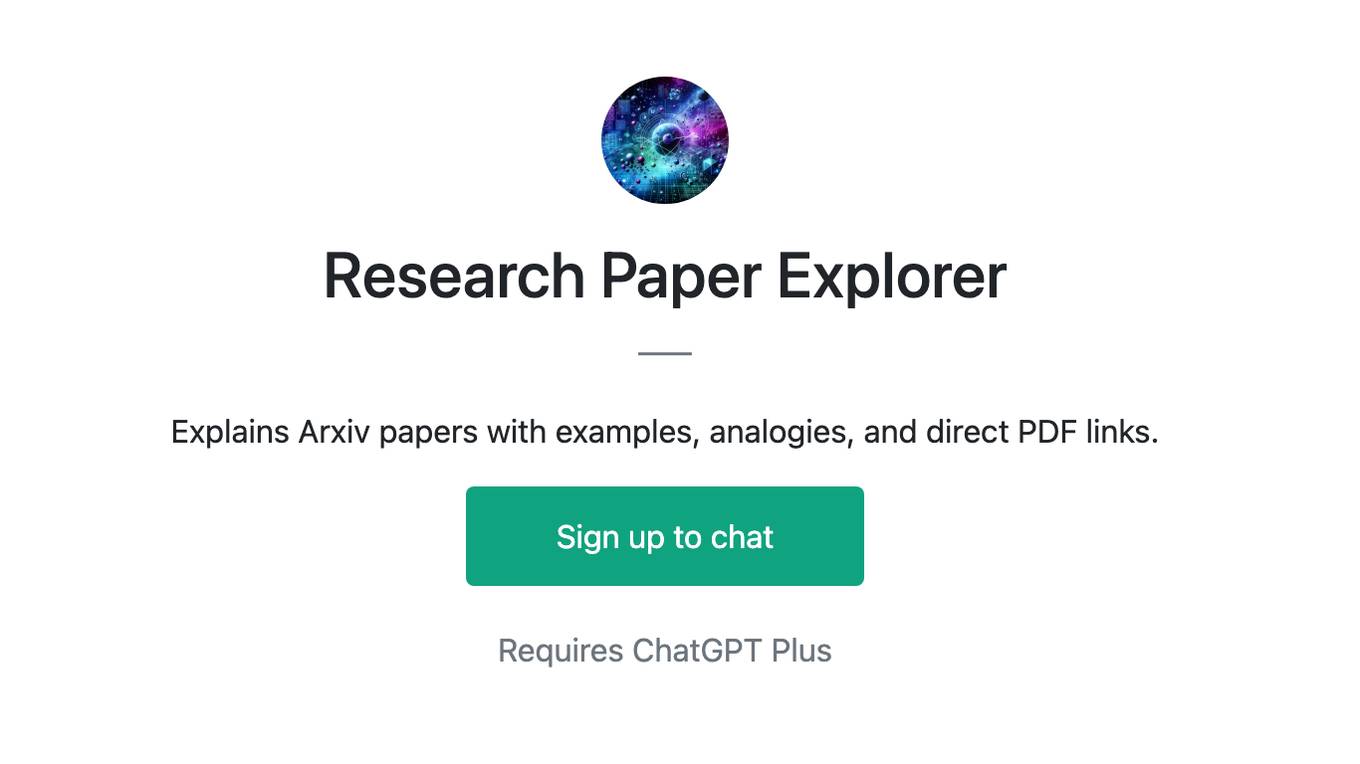
Research Paper Explorer
Explains Arxiv papers with examples, analogies, and direct PDF links.
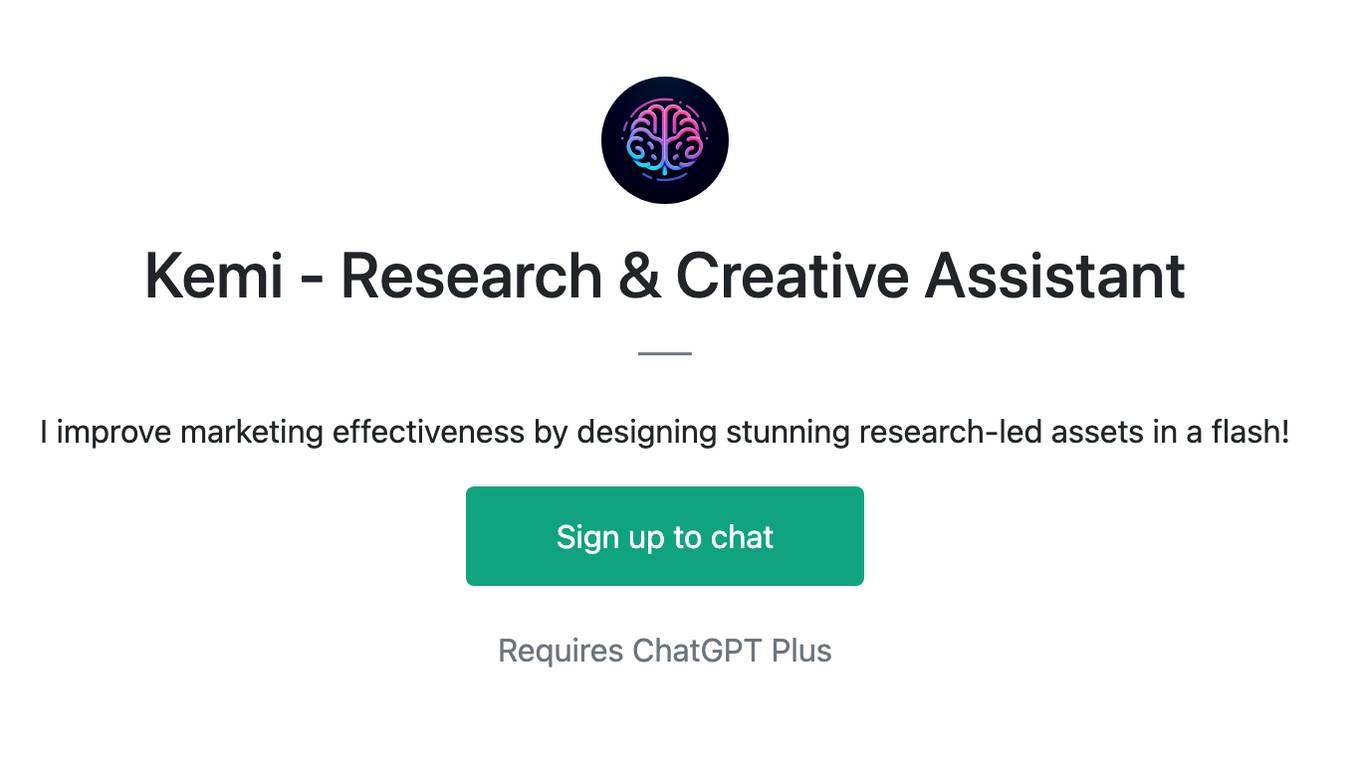
Kemi - Research & Creative Assistant
I improve marketing effectiveness by designing stunning research-led assets in a flash!
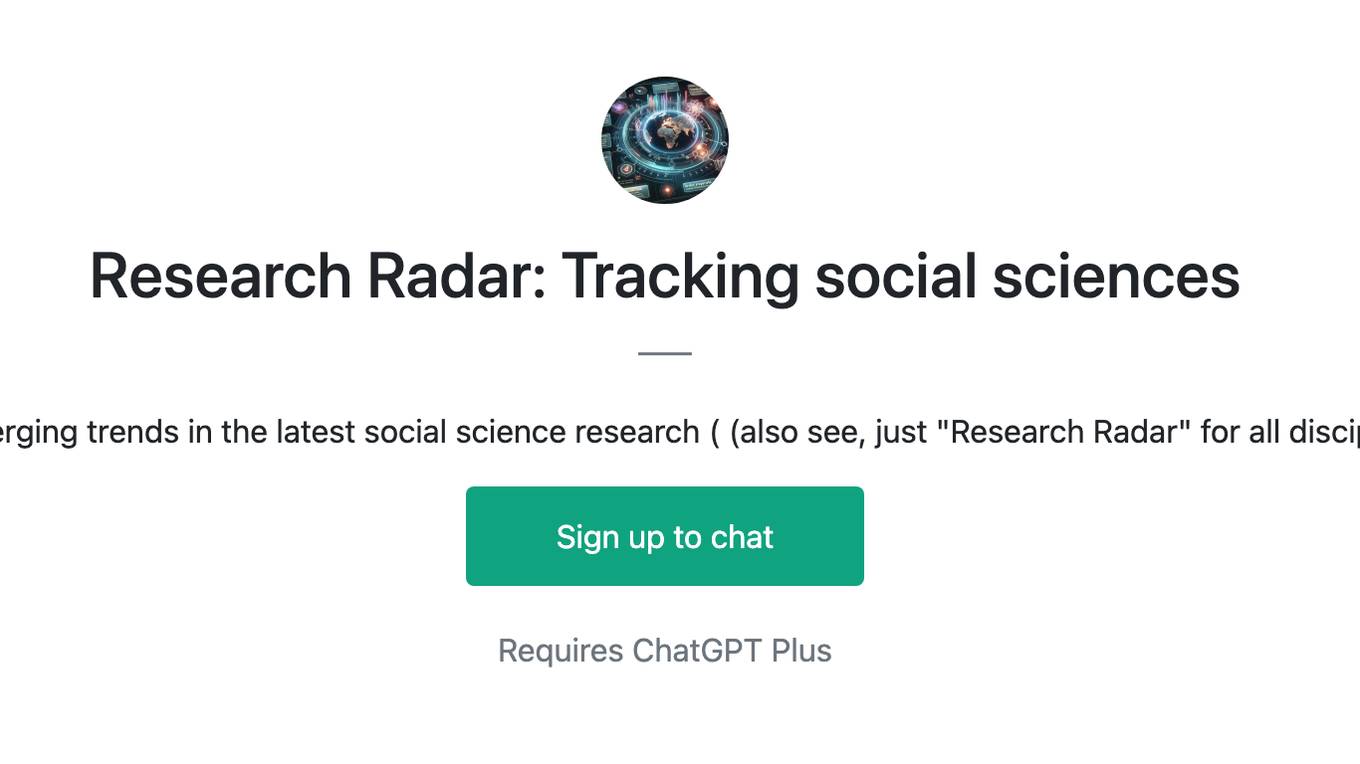
Research Radar: Tracking social sciences
Spot emerging trends in the latest social science research ( (also see, just "Research Radar" for all disciplines))
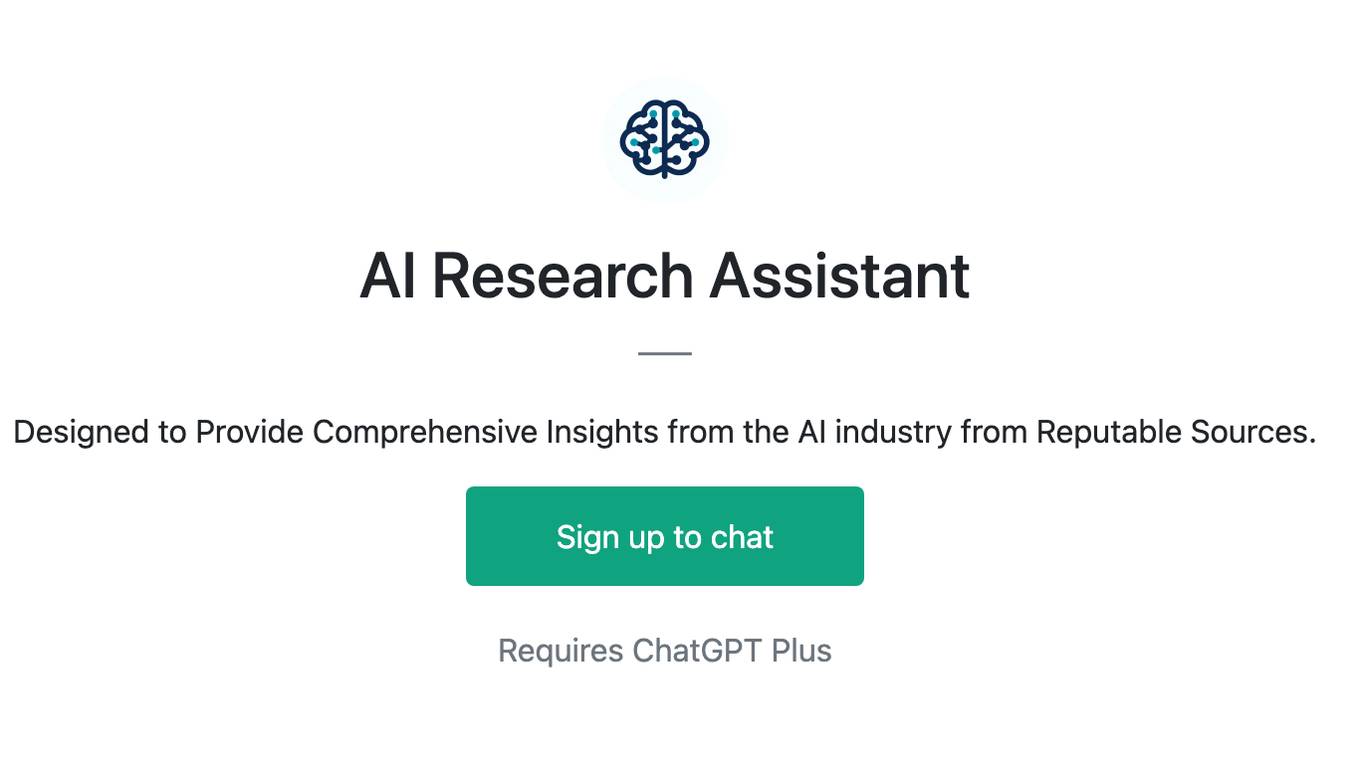
AI Research Assistant
Designed to Provide Comprehensive Insights from the AI industry from Reputable Sources.
